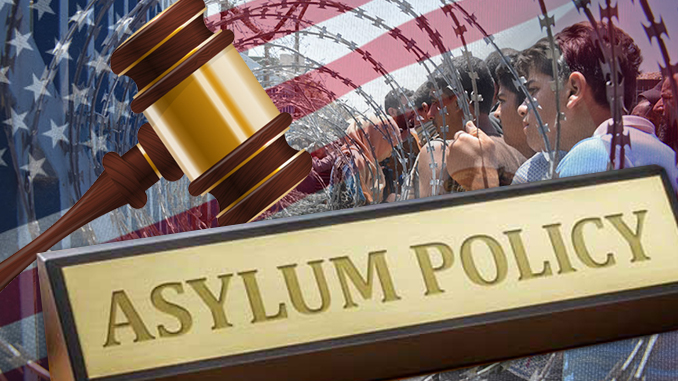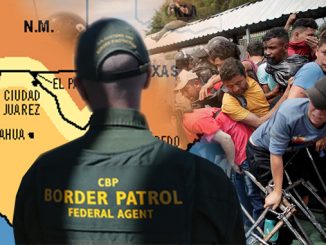
By shunning its international obligations, Mexico is causing a flood of asylum requests within the United States by Central Americans who legally should be applying for asylum at the first foreign border they reach.
By Mark Anderson
There are unsubstantiated claims that Central Americans, especially those from Guatemala, El Salvador, and Honduras, are subjected to persecution, assaults, murder etc. in such a consistent manner that they have no choice but to uproot and flee their home countries in droves. Yet, rather than obtaining sanctuary in Mexico in order to remain close enough to home to return should the need arise, they instead risk their lives and the lives of their children crossing some 1,900 miles of often forbidding Mexican territory to enter the United States.
So why don’t they seek asylum in Mexico if they need immediate relief from persecution? And if they’re seeking asylum in the U.S., what happened to the Hague Convention and Protocol, which has long required that refugees leaving a presumably violence-torn home country must seek asylum in the first non-hostile country that they enter?
Dan Cadman of the Center for Immigration Studies, a Washington-based think tank, shared his views on the matter.
“The problems are multiple, but the answer is yes, the International [Hague] Convention and Protocol still requires people seeking safe haven to ask [for asylum] in the first country at which they can reasonably do so,” he informed this writer.
However, legalistic meddling and liberal interpretations of the convention have made the rules pliable.
“The way that convention has been codified into U.S. law by Congress used slightly different wording, which, as lawyers and legalists argue, levies an expectation on the U.S. to entertain the requests for asylum,” he said.
He went on to explain that the key to solving the problem is for the United States to enter into a bilateral agreement with Mexico to require America’s southern neighbor to honor its obligations under the convention in the manner that Canada does.
“Despite the fact that Mexico is also a signatory to the Convention and Protocol, we have no bilateral agreement with Mexico—as we do with Canada—to make them live up to their obligations,” Cadman continued.
Thus, the core problem is the absence of such a pact with Mexico, which is aggravated by liberal courts and activist lawyers gaming the system.
“There are a lot of progressive activists in the country these days—including on the bench—and this is the interpretation that they choose to focus on,” Cadman summarized, referring to the expectation that the U.S., with its overly generous welfare system serving as a beacon, is the place to which asylum seekers must travel.
Mark Anderson is AFP’s roving editor. Email him at [email protected].




